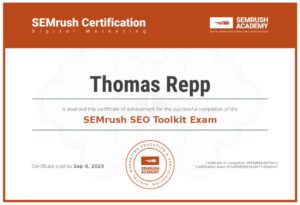 In the fast-evolving landscape of digital advertising, B2B industrial marketers are facing unprecedented challenges.
In the fast-evolving landscape of digital advertising, B2B industrial marketers are facing unprecedented challenges.
The cost per thousand (CPM) is on the rise, fragmentation in the digital ad marketplace is increasing, and the impending demise of third-party cookies by giants like Google is casting a shadow over tracking and targeting capabilities. In the face of these tactical marketing hurdles, the imperative for B2B marketers is clear: Now more than ever, they must turn their attention to building and nurturing brand equity.
The escalating CPM rates are one of the primary concerns for B2B industrial marketers. As competition intensifies and the digital space becomes more saturated with AI content, the cost of reaching potential customers is steadily climbing. This escalation is driven by a multitude of factors, including the proliferation of digital channels, the growing demand for ad space, and the increasing sophistication of targeting technologies. Consequently, industrial marketers find themselves grappling with shrinking budgets and diminishing returns on their advertising investments.
Adding to the complexity is the fragmentation of the digital ad marketplace. With an ever-expanding array of platforms, devices, and formats vying for consumers' attention, it's becoming increasingly challenging for marketers to cut through the noise and deliver their message effectively. This fragmentation not only complicates campaign management but also dilutes the impact of marketing efforts, making it harder to achieve meaningful digital engagement and conversion rates.
However, perhaps the most disruptive force on the horizon is the impending demise of third-party cookies. These small pieces of code, which track users' browsing activities across the web, have long been a cornerstone of digital advertising, enabling marketers to target and retarget audiences with precision. Yet, with growing concerns around data privacy and regulatory scrutiny, tech giants like Google have announced plans to phase out support for third-party cookies in their browsers. This move threatens to upend the entire ecosystem of online advertising, forcing marketers to rethink their strategies for audience targeting and measurement.
In light of these challenges, the traditional tactics of B2B industrial marketers may no longer suffice. Instead of relying solely on performance-driven campaigns focused on lead generation and conversion, marketers must broaden their horizons and invest more resources in building brand equity.
Brand equity, often defined as the intangible value associated with a brand's reputation and perception, plays a crucial role in shaping purchase decisions, fostering customer loyalty, and driving long-term growth. In the crowded and competitive B2B industrial marketplace, where products and services often share similar features and functionalities, a strong brand can serve as a powerful one-two punch, helping companies stand out from the crowd and command premium prices.
Moreover, in an environment where traditional targeting and tracking methods are becoming increasingly limited, brand equity offers a more sustainable and resilient foundation for marketing success. By cultivating a distinct and compelling brand identity, companies can forge deeper connections with their target audience, engender trust and credibility, and create lasting impressions that transcend individual marketing campaigns.
To effectively build brand equity, B2B industrial marketers must adopt a holistic and long-term approach to marketing. This entails not only crafting compelling brand narratives and visual identities but also delivering consistent and memorable brand experiences across all touchpoints, from advertising and social media to customer service and product delivery.
Furthermore, B2B industrial marketers must prioritize efforts to engage and nurture their existing customer base, recognizing that repeat business and word-of-mouth referrals are often the most potent drivers of brand advocacy and loyalty. By delighting customers at every stage of the buyer journey and exceeding their expectations, companies can turn satisfied customers into passionate brand advocates who will champion their products and services to others.
In conclusion, the challenges facing B2B industrial marketers in today's digital landscape are formidable, but not insurmountable. By shifting their focus from short-term performance metrics to long-term brand building, marketers can adapt to the changing dynamics of the marketplace and thrive in the face of uncertainty. In a world where CPMs are rising, fragmentation is increasing, and tracking capabilities are diminishing, brand equity emerges as the North Star guiding marketers towards sustainable digital success.
Need help crafting your B2B marketing strategy, tie your SEO and content together and prepare for AI? , give me a call or contact me via email.
Author:Tom Repp
A passionate marketer attempting to change the way industrial marketers leverage the web as a growth-oriented, lead generation machine. View all posts by Tom Repp






